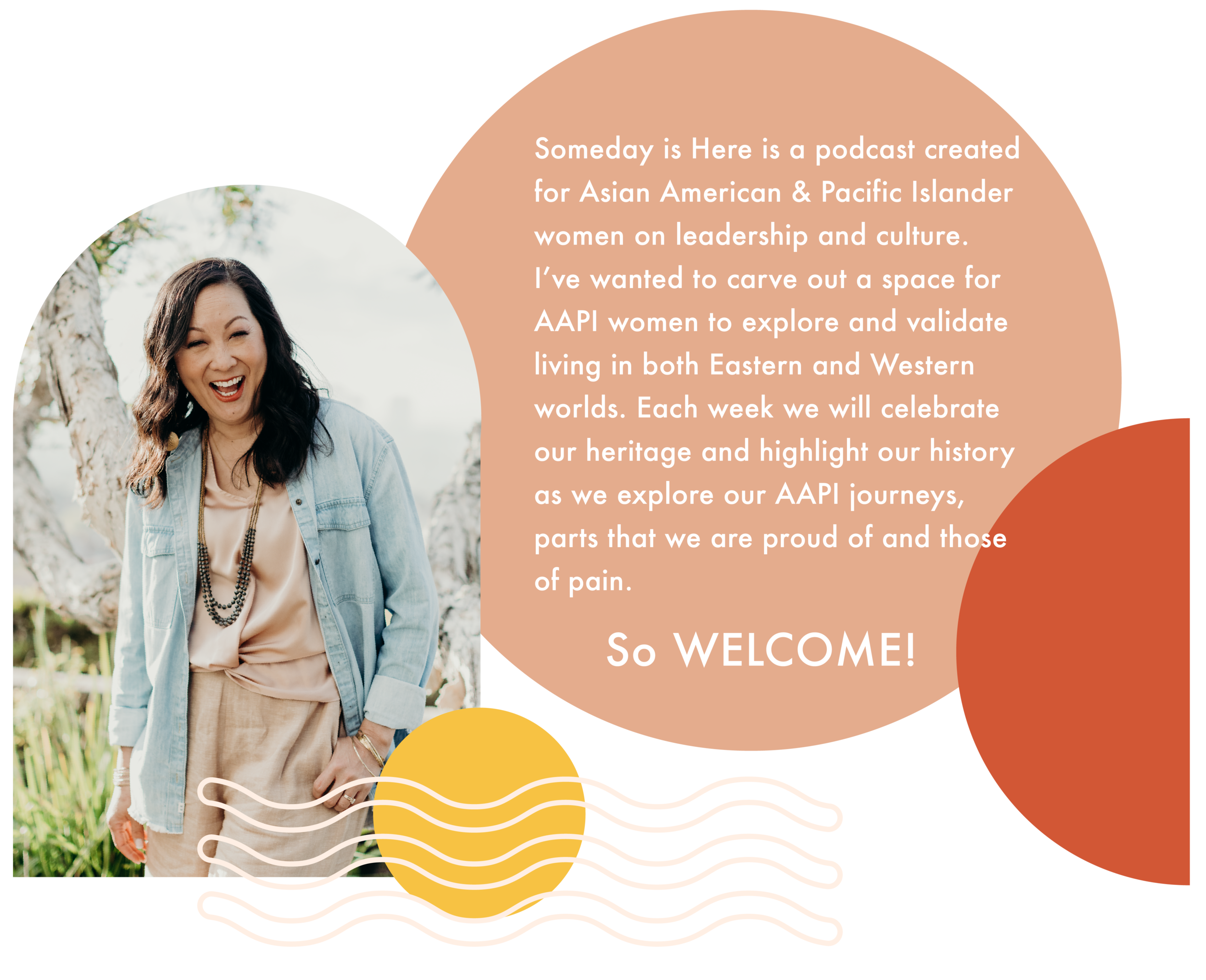Episode 30 - Nancy Wang Yuen
Episode 30 w/ Nancy Wang Yuen
You’re going to love this conversation with @nancywyuen, author of “Reel Inequality: Hollywood Actors and Racism,” sociologist, and pop culture expert. We cover so many important and helpful topics: what it means to be 1.5, the use of identifying as Asian American, #oscarssowhite, the importance of role models, practical components and steps for organizations seeking to make true change, #representationmatters, and so much more. Nancy is a brilliant thinker and communicator and a great leader worth following. Can’t wait for you to listen to this episode!
LEARN MORE ABOUT NANCY
Instagram: @nancywyuen
Twitter: @nancywyuen
Nancy Wang Yuen is a sociologist and pop culture expert. She is the author of 'Reel Inequality: Hollywood Actors and Racism' and co-author of 'Tokens on the Small Screen: Asian Americans and Pacific Islanders in Prime Time and Streaming Television.' She has appeared on PBS, NPR, BBC World TV, Dr. Phil, New York Times, Washington Post and Los Angeles Times. She is a guest writer at Newsweek, Elle, HuffPost, and Self.
FAVORITE COMFORT FOOD
Scallion Pancakes!
Leadership Lesson
“Don’t think that there’s only one type of leadership or think that the whole kind of idea that we are more communal and less individual but sometimes I feel like we box ourselves in.”
“I try to communicate in ways that aren’t accusatory. I try to communicate truth. I don’t water it down necessarily. I’m not afraid of hurting feelings but I don’t do it in a way where I feel like is necessarily trying to make people feel bad for the sake of feeling bad.”
DID YOU KNOW?
Representative Was, Is, and WIll Always Be Important
Did you know that Beulah Kwoh helped found East West Players in Los Angeles? A life led by someone like Beulah Kwoh has helped pave the way for future Asian American representation in the media and on stage. An advocate for Asian American representation, Beulah also had to face the tension of working in a field that glamorized whiteness while also fighting for representation. Beulah Kwoh was born in Stockton, California in 1923. (1) A Cal Berkely and University of Chicago alumni and sociologist by training, Kwoh did not start her acting career until she was in her 30s. At the time she was teaching sociology at Los Angeles Community College after returning from working abroad at a University in China. (2) Her husband and her had been teaching there for a couple years and fled with their newborn after the Communist party took over. (3) While she was working at LA Community College, a friend referred her to director Henry King who was in need of a dialect coach to teach white actress Jennifer Jones how to speak with a British Chinese accent in the upcoming film, Love is a Many Splendored Thing (which… there are some super cringey YouTube trailers). (4) However, King instead casted her in a small role and her acting career took off. As she trained and took on more roles, she became more and more aware of the inequities that Asian American performers faced, and the flat, one-sided, stereotypical roles they were being given. (5) In response, she co-founded East West Players in the 60s, an Asian American theater company that is still thriving to this day. Through East West Players, aspiring actors of color were (and still are) encouraged to explore their talents while portraying multidimensional characters. (6) She didn’t stop there, shortly after in the 70s she also helped co-found the Association of Asian Pacific American Artists to fight against Asian American stereotyping in the media. (7) Today, East West Players continues the legacy of Beulah Kwoh and her co-founders as they “inspire and advocate for a world free of racism and discrimination through transformative artistic works.” (8)
Stewart Kwoh and Mary Ellen Kwoh Shu, “Breaking the Color Line in Hollywood: Beulah Ong Kwoh, Actor,” in Untold Civil Rights Stories: Asian Americans Speak Out for Justice, ed. Stewart Kwoh (Los Angeles, California: UCLA Asian American Studies Center and Asain Pacific American Legal Center, 2009), 56.
Ibid, 56.
Ibid, 56.
Ibid, 56.
Ibid, 57.
Ibid, 57.
Ibid, 59
“Mission and History,” East West Players, Accessed September 30, 2020, https://eastwestplayers.org/about-us/.
Works Cited
Kwoh, Stewart and Mary Ellen Kwoh Shu. “Breaking the Color Line in Hollywood: Beulah Ong Kwoh, Actor.” In Untold Civil Rights Stories: Asian Americans Speak Out for Justice, edited by Stewart Kwoh, 54-63. Los Angeles, California: UCLA Asian American Studies Center and Asain Pacific American Legal Center, 2009.
“Mission and History.” East West Players. Accessed September 30, 2020. https://eastwestplayers.org/about-us/.
Resources
Read the rest of Untold Civil Rights Stories: Asian Americans Speak Out for Justice HERE
.

















